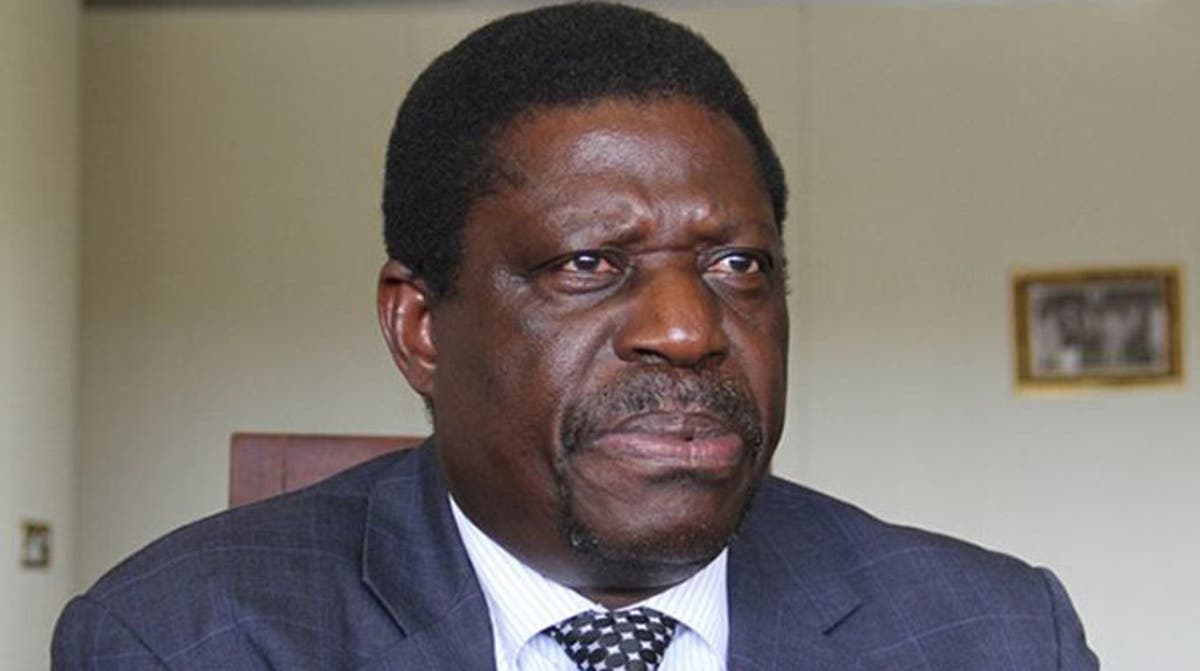ZANU PF is due to hold its elective congress next year amid serious ructions threatening to tear the former liberation movement apart ahead of the 2023 harmonised elections.
The Daily News on Sunday’s Political Editor Mugove Tafirenyika last week sat down with the party’s acting national spokesperson Mike Bimha, pictured, to discuss this and other issues.
Below are excerpts of the interview.
Q: Zanu PF recently held its annual conference in Bindura. What was it all about?
A: The 19th Zanu PF annual conference was a unique one because it was blended in the sense that we had a physical conference in Bindura and a virtual conference in all our 10 provinces, including in Bindura itself.
It was also unique in the sense that we had reduced numbers because the physical one in Bindura was for politburo members and some selected members of the central committee and the national advisory council.
The conference was unique in the sense that we made use of technology in that we could communicate with delegates in other provinces without them being physically in Bindura.
The theme of the conference was Growing and modernising the economy towards Vision 2030.
The thrust is the economy. In other words, expand, keep on growing and at the same time keep up with time, let us modernise it.
There was the presentation of the central committee report to the conference, presentations by government ministers in respect of ministries such as Finance, Mining, Agriculture, Labour, etc.
The acting national political commissar (Patrick Chinamasa) also presented on the state of the party. Prior to the conference, the various provinces had had time to hold their own mini conferences where they formulated and recommended resolutions.
These were interrogated at the main conference before it went into thematic groups, including one on state of the economy, state of the party and social services.
In the end, the conference came up with resolutions which were passed and adopted.
It was, in my view, one of the best conferences I have attended in terms of the organisation, with things moving according to plan and on time and people participating fully.
The quality of the resolutions was quite impressive, reflecting that people understand the issues and are clear on what they want and where they want to go.
It now behoves the leadership to drive the implementation of the same. So, I am happy that the conference was a big success, reflecting the hard work put in by various stakeholders.
Q: The conference is now behind us, when are we going to see the party holding its suspended provincial elections?
A: Our concern is not about time, but the thoroughness of the restructuring exercise at cell, branch and leading to the district level, so the commissariat department is very clear that they want to ensure the base is correct.
This will make sure that our cell structures are credible and once we have that, it becomes easier to move up the ladder in terms of organising elections, establishing the electoral roll.
Once the commissariat is happy and satisfied that there are credible structures captured in our computers, it won’t be any big exercise to look into elections going upwards.
So, I don’t have the time because it will be determined by the processes I mentioned and like I said, starting this week, the structure verification is on hence in no time we should be talking about other structures going upwards.
Q: There was a proposal to have provincial chairpersons chosen by consensus. Why was it thrown out at the conference?
A: Well it is not a question of why, but the issue is that we are still conducting our business on the basis of our current constitution where people are put into positions as a result of elections, not appointments.
Q: There is a school of thought that consensus would probably contain the internal contradictions that are evident during the ongoing restructuring exercise in Zanu PF that allegedly border on factionalism?
A: But when we talk about democracy, which our party subscribes to and which our constitution makes reference to, it means electing people to positions of power.
Leaders are chosen by the people who they are going to be leading, therefore, to me there is no consensus which is better than election.
Election is itself a consensus where the majority are saying this is the guys who should lead us. What more consensus would you ask for?
Q: The Zanu PF elective congress is due next year. When exactly will it be held?
A: Again, as I said, at the moment the party is focusing on the restructuring exercise and once we are through, we go into the pending elections for National Assembly and local government.
The president has already indicated when they will be held so that is our focus.
In any case, the biggest decision to be made at the congress is the choice of the party leader and there are no two ways for us now because at the conference we endorsed President Emmerson Mnangagwa as the sole candidate for 2023 elections.
That is the most important decision that the congress has to come up with and it’s already made.
Q: So is it fair to say that the congress will be a damp squib because it would be a dead rubber.
A: It cannot be true because there are also other decisions and activities that take place.
Choosing leadership is only one of the activities at congress, but there are also others.
We will talk about that when we reach that bridge because there is so much that goes into it and one cannot be able to know about what the issues would be.
Q: Does the Zanu PF constitution close the door for anyone with presidential ambitions after the conference has endorsed someone else?
A. But we are saying Zanu PF has endorsed the president as the party’s sole candidate and no one can say why you have decided to do that.
It is what we want; an expression of our desire, so let it be.
Q: I agree that is the party’s position. However, what happens if an individual emerges between now and the congress saying he or she wants to contest the presidency?
A: We can’t talk about issues along the way because that is what we have decided as of now.
Q: But if someone chooses to contest what processes follow?
A: We cannot talk about ifs because it is like asking me whether I will choose someone else if God comes tomorrow.
You cannot ask me what I will do if the world ends next week. We talk about now, what comes in the future, we will cross the bridge when we get there.
Q: The government is bragging that the economy has improved yet it is not being felt in the pockets of ordinary citizens with the prices of basic goods rising. Going into the 2023 election, is Zanu PF confident that it will sail through under the circumstances?
A: We are confident because the number of our members is telling. We have a target to reach five million and we are getting there very soon.
Q: But the MDC Alliance also claims it is working towards six million. Does that guarantee them victory?
A: I am speaking about Zanu PF and I don’t know how the MDC does its sums. I am saying as Zanu PF we are getting the five million votes that we are targeting.
Q: But why do you think that despite the economic challenges that I alluded to suffering, Zimbabweans will still vote for Zanu PF?
A: Because the new dispensation has demonstrated that our country can only move from strength to strength under President Emmerson Mnangagwa.
The work that has been done in terms of stabilising the economy despite some of the challenges that have will always been there.
Challenges will always be there in any environment even in developed countries; it is not smooth sailing all the time because the environment is determined sometimes by outside forces.
The issue is that the government came up with policies that addressed fundamental issues and stabilised prices when we all thought things were going haywire.
The minister of Finance and the RBZ governor have both said some of the things we see now are not problems caused by economic fundamentals, which would have been a big issue.
The problems we have are behavioural and are caused by people with sinister agendas, but that is being resolved.
Q: Zanu PF made several promises to the electorate ahead of the 2018 elections, including availing electricity, affordable healthcare, and affordable prices of goods among several others.
However, there seems to be little on the ground to suggest that you are fulfilling them except for maybe road rehabilitation.
A: I will give you a different example, the party at the last conference came up with so many resolutions to say this is what we will do.
If the party scores 60 percent, people can still say they want us to continue. But our assessment before we went to the conference, in an exercise conducted by both the party and the office of the president and cabinet because most of the resolutions are implemented by the government, it has shown that 80 percent of the resolutions have been implemented.
Q: But this is not the assessment of Zimbabweans. It is self-assessment; self-praise. Can we take that seriously?
A: Wait. The other 20 percent is made of resolutions that are in the process of being implemented.
Now I was saying 60 percent is a huge achievement, now we are talking of 80 percent now and by the time we get to 2023 we will be talking of 99 percent.
The party is voted by its members and the resolutions are made by its members so if they are satisfied then we are home and dry.
You might not be satisfied, the next person might be unhappy, but they are not our members and is not going to vote for us anyway








